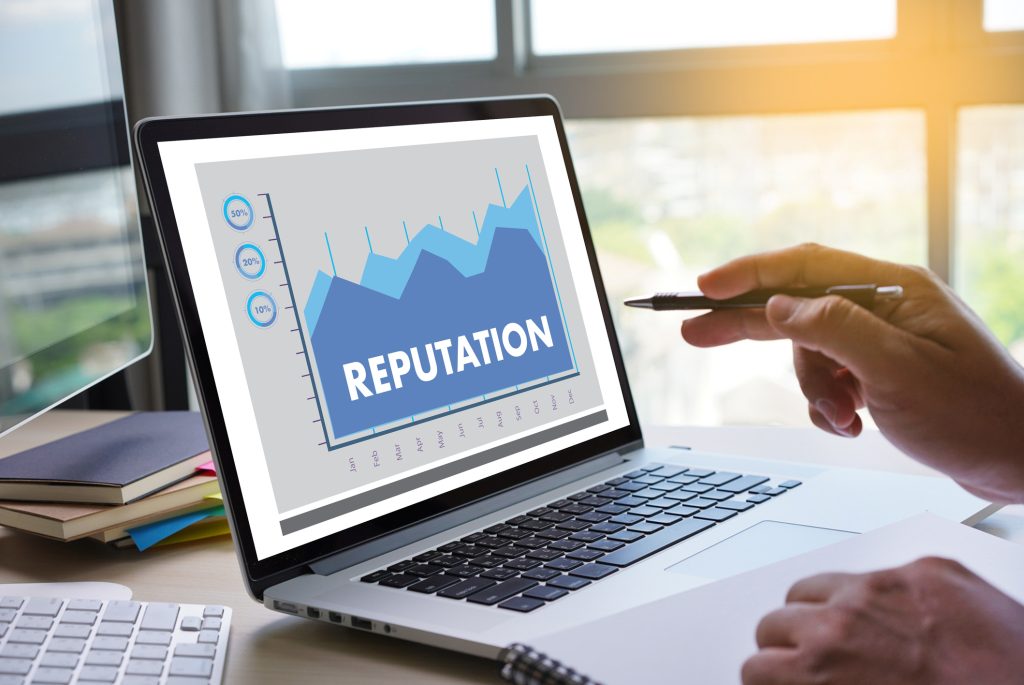Introduction to Reputation in the Digital Mirror
In today’s hyper connected world an individual’s reputation is no longer defined by private networks or local gossip. Instead it’s crafted shaped and judged in the vast digital mirror of the internet. Search engines review sites and social media platforms have become the first point of reference for anyone looking up a professional be it a CEO running a multinational a doctor performing life saving surgeries or a politician campaigning for public trust.
The stakes are high. For individuals at the helm of influence reputation is not just a reflection it’s a currency. A single misstep or unchecked rumor can erode years of credibility. That’s why personal Online Reputation Management (ORM) has shifted from being a “nice to have” tool into a survival necessity.
Why Personal ORM Is Different From Brand ORM
Most people associate Online Reputation Management (ORM) with businesses. But managing an individual’s reputation carries unique complexities that go far beyond brand level concerns. Unlike companies individuals do not have layers of departments crisis managers or PR teams acting as a protective buffer. A single misstep can quickly spiral into a defining headline. A CEO’s tweet a doctor’s malpractice review or a politician’s leaked video instantly ties back to their personal image often without any room for damage separation.
This direct accountability makes personal ORM both more fragile and more critical. When an executive speaks a physician makes a mistake or a public servant faces scrutiny the impact does not just touch their career it reshapes their entire identity in the public eye. That’s why building resilience shaping the right digital narrative and securing long term credibility are essential for survival in today’s information driven era.
Key Differences
When it comes to reputation, individuals face unique challenges compared to brands. The table below highlights the critical differences that make personal reputation management far more demanding and long-lasting.
| Humanization Factor | Longevity of Impact | Search Engine Weight |
|---|---|---|
| Individuals are scrutinized more harshly because they represent values, ethics, and decision-making directly. Unlike brands with a “corporate shield,” their personal behavior itself becomes the headline. | Companies can rebrand, merge, or pivot, but individuals carry their name, face, and identity permanently. A single mistake or controversy can shadow their reputation far longer than a brand’s crisis. | Personal names rank quickly and prominently in search results. One negative article can dominate the first page of Google for years—especially since most people rarely look beyond page one. |
The CEO and the Investor’s Lens
For CEOs personal reputation management extends far beyond vanity it’s tied directly to shareholder confidence and market performance.
Case in Point: Elon Musk
When Musk tweets about Tesla or SpaceX stock prices fluctuate in real time. Investors do not just evaluate product pipelines; they evaluate Musk’s credibility and tone. A series of controversial tweets in 2018 temporarily wiped billions off Tesla’s market value. Here personal ORM was not just about suppressing bad press it was about actively guiding public narrative.
The CEO’s Digital Footprint
Every keynote video media interview LinkedIn post or even vacation photo contributes to how the world perceives a leader. ORM ensures these digital breadcrumbs align into a consistent narrative, visionary trustworthy forward looking.
Without it even minor controversies can balloon into investor doubts employee attrition or consumer boycotts.
Doctors and the Patient’s Trust Equation
For medical professionals the doctor patient trust equation is sacred. Yet in the digital world it often plays out through ratings and reviews.
Case Example:- Health grades & ZocDoc Reviews
A single one star review on a medical review site can deter hundreds of potential patients. Unlike restaurants or hotels people do not “test drive” doctors. They rely almost entirely on reputation signals patient reviews peer recommendations or Google results.
Why Doctors Can’t Ignore ORM
Malpractice Allegations:- Even if unproven allegations linger online.
Bedside Manner Criticism:- A doctor may be clinically excellent but poor communication reviews can overshadow skills.
Competitor Manipulation:- Fake negative reviews are sadly common in healthcare where competition is fierce.
ORM strategies for doctors often include monitoring patient review platforms creating authoritative medical content and ensuring positive patient experiences are visible online.
Politicians and the Battle for Public Perception
Why it matters: For politicians, online reputation management (ORM) is more than image—it’s survival. Their words and actions influence entire societies, and in today’s digital climate, even a single controversy can decide elections.
| Case Example: Social Media Backlash | The New Battlefield |
|---|---|
| A politician’s offhand remark from a decade ago can resurface in today’s polarized climate, amplified by millions of retweets. Without ORM, a narrative of “insensitivity” or “corruption” can snowball unchecked. | ORM now demands real-time monitoring, fact-checking, and credibility building to counter misinformation and hostile narratives. Politicians who ignore it fight battles blindfolded. |
The New Battlefield – Key Challenges
- Misinformation Campaigns: Deepfakes, edited clips, and fabricated news spread faster than corrections.
- Opposition Amplification: Rivals weaponize old scandals, boosting them back into trending feeds.
- Community Sentiment: Voter trust now hinges not just on speeches, but on online discourse and sentiment trends.
Psychological Dimensions of Personal ORM
Reputation does not just shape perception it shapes behavioral decisions.
Negativity Bias:- People remember negative stories longer than positive ones. A single viral accusation can overshadow years of good work.
Fear of Regret:- Patients avoid doctors with bad reviews voters avoid “risky” candidates and investors avoid CEOs with scandals all because they do not want to regret their choice.
Halo Effect:- Once an individual is perceived positively even minor mistakes are forgiven. ORM works to establish that protective halo early.
By managing narratives ORM tools influence how audiences subconsciously assign trust authority and credibility.
Tools of the Trade:- How Personal ORM Works
Managing personal reputation is both art and science powered by advanced tools.
- AI Sentiment Analysis
Detects sarcasm emotional tone and intent behind mentions so risks are flagged before they escalate. It helps differentiate between genuine criticism and online trolling for smarter decision making. - Search Engine Optimization (SEO)
Pushes positive press articles and interviews higher while pushing down negative results. This ensures the first impression online reflects credibility and authority not controversy. - Review Management Systems
Platforms track mentions on review sites forums and blogs providing alerts for immediate response. Quick engagement turns negative experiences into opportunities to showcase responsibility. - Content Creation & Amplification
Authority building through thought leadership articles keynote videos and verified Wikipedia entries. Consistent publishing keeps your narrative alive while overshadowing negative noise. - Crisis Simulation Tools
Run “reputation stress tests” to see how scandals would unfold digitally allowing preventive preparation. These simulations give leaders a roadmap for handling worst case scenarios with confidence.
These tools transform personal ORM from reactive firefighting into predictive safeguarding.
✨ Want to protect and elevate your personal reputation? Visit our Reputation Management page to explore our services.
Case Studies: Real World Lessons
1. The CEO Redemption Arc
A Fortune 500 CEO faced allegations of workplace discrimination. Instead of silence ORM strategies ensured
Transparent acknowledgment:- Owning mistakes openly reduces speculation and builds trust with the public.
Launch of diversity initiatives:- Practical actions show commitment to change rather than empty promises.
Positive press amplified through LinkedIn campaigns:- Highlighting achievements on professional networks reshapes the narrative in front of key stakeholders.
Result:- The CEO not only recovered reputation but positioned themselves as a leader in corporate inclusivity.
2. The Doctor’s Fake Review Attack
A cardiologist noticed a sudden drop in patient appointments due to fake one star reviews. ORM:-
- Flagged fake reviews with platform authorities
- Encouraged satisfied patients to leave real feedback
- Published case studies in medical journals for authority
Result:- Star rating recovered and patient trust returned stronger.
3. The Politician’s Crisis Management
A leaked video misrepresented a politician’s stance on healthcare. ORM team:-
- Released full context video
- Pushed fact check articles higher in Google results
- Engaged with voters via live Q&A
Result:- Negative narrative was diluted and polls stabilized.
Future of Personal ORM:- Beyond 2025
The future of personal reputation management isn’t just about damage control. It’s about owning your digital identity in ways we’ve never seen before. By 2025 and beyond, technology will turn reputation into a measurable asset.



In this new era, reputation won’t just shape perception. It will define opportunities.
Conclusion: The Non Negotiable Imperative
For CEOs doctors and politicians personal reputation management is no longer optional it has become an existential requirement. In today’s interconnected world a single Google search result can influence investors shape the decisions of patients or even alter the choices of voters. Unlike brands that can rebrand or pivot individuals carry their names and identities permanently which means every headline matters. Online Reputation Management (ORM) ensures that the narrative people encounter reflects truth credibility and authority rather than scandal rumor or sabotage.
In a digital landscape where perception often shapes reality personal ORM works like a modern day life insurance policy protecting influence safeguarding trust and creating future opportunities. Those who ignore it risk being permanently defined by others through half truths or negativity while those who embrace it take control of their story protect their legacy and write their own digital destiny.
Disclosure: We are a dedicated content marketing agency guiding small and medium businesses through their journey to the first page of Google.

Admin at Search Marketing Experts, publishing insightful blog posts on SEO, digital marketing, and strategies to help businesses grow online.

